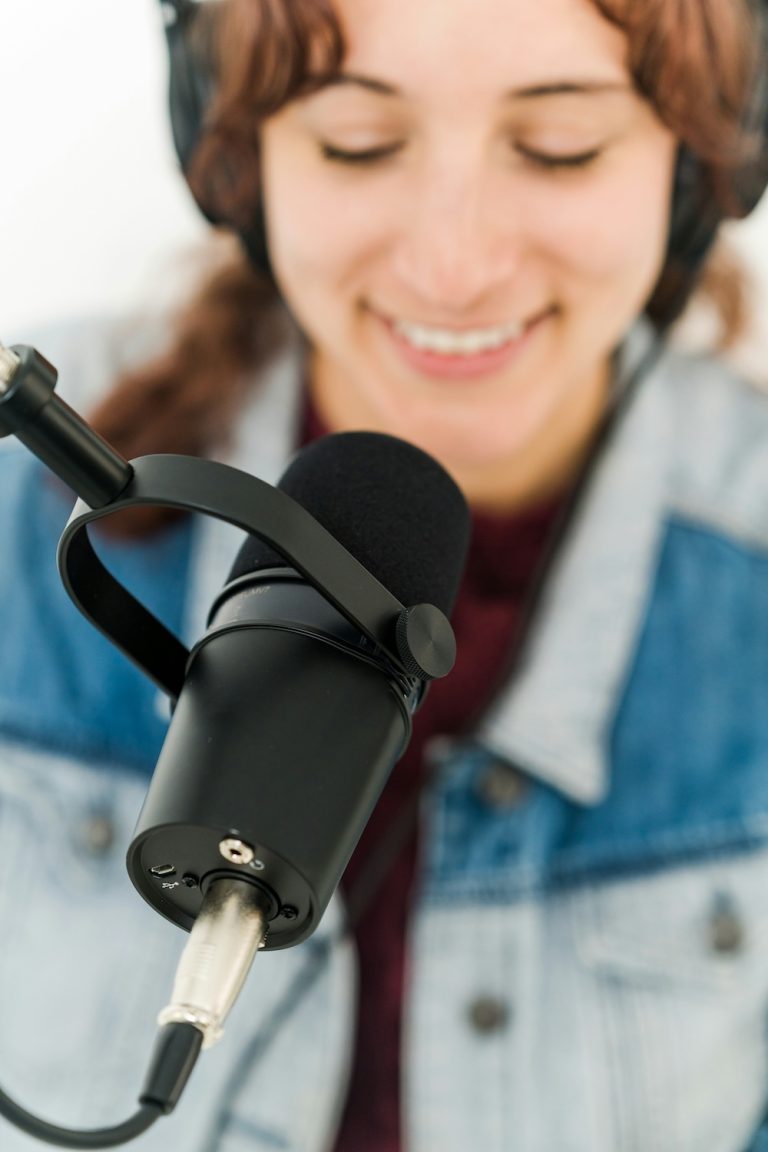By Danny Ozment, Emerald City Productions (Full Service Digital Marketing, SEO, Content Marketing, Ads, CRM, and Web Development)
Key Takeaways
- Podcasts build trust faster than almost any channel. Listeners spend real time with you, hear your voice, and feel like they know you—turning casual listeners into clients.
- Go hyperlocal and become the “digital mayor.” A community-focused show—like personal injury attorney Parker Larson’s—creates goodwill, referrals, and word-of-mouth at scale.
- One recording = all your marketing assets. Record once, then repurpose into videos, blog posts, social clips, emails, and even a book to multiply deliverables while saving time and money.
- Measure what matters. Track actions—consultations, workshop signups, and list growth—not just downloads. Play the long game (6–12 months) and focus on the right audience, not the biggest one.
- Ethics + empathy win. Client stories (with permission) and “speaking human” make complex law approachable; focus groups help you match real-world language to real people.
Introduction
This article is a practical guide for Podcast Marketing Strategies for Lawyers. I’m Danny Ozment, owner of Emerald City Productions, and my team helps professional firms grow with full-stack marketing: SEO, content, ads, CRM automation, and web development. Below, I’ll walk through proven strategies lawyers are already using—hyperlocal shows, client storytelling, and content repurposing—then update them with what’s working now on the internet so you can turn each episode into high-value marketing assets and measurable business results.
Why Podcasts Build Trust Faster Than Anything
Law is a trust business. Podcasts create an unusually intimate connection: people listen at home, in the car, at the gym—often for hours every week. That sustained attention allows you to be yourself, tell stories, and build a real bond in just a few 15–30 minute episodes. Subscriptions push your content to listeners automatically, so you don’t fight the algorithm each time. The result? People feel like they already know you before they ever pick up the phone.
Modern update:
- Add short intro music and a warm cold-open to hook mobile listeners in the first 20–30 seconds.
- Publish full transcripts for accessibility and SEO (use PodcastEpisode schema).
- Include a clear, single call to action (CTA) in each episode and show notes.
Strategy 1: Launch a Hyperlocal “Digital Mayor” Show
The idea: Don’t talk about the law—talk about your community. Interview local leaders, principals, newspaper editors, nonprofit founders, restaurateurs, and event organizers. Share what’s happening this weekend, review a new taco spot, or highlight a local hero. Sponsor the show with your firm, but keep the ad light and the value heavy.
A real example: Personal injury attorney Parker Larson created a show for his town (Ponchatoula, LA). He interviewed hometown figures, reviewed restaurants, and covered festivals. He launched a Facebook group for listeners and quickly drew close to 1,000 locals—about 10% of the town—positioning himself as the digital mayor (and trusted neighbor) without shouting about legal services.
Modern update playbook:
- Cross-post each episode to your Google Business Profile as an update (boosts local SEO).
- Publish short vertical clips on Reels/Shorts/TikTok with geotags and neighborhood hashtags.
- Start a private Facebook Group or LinkedIn group for community Q&A; seed it with episode topics.
- Add a community calendar page on your site and embed your latest episode there.
Strategy 2: Record Client Stories (Ethically) to Lower Fear
Hiring a lawyer is a big, often scary decision. Interview former clients (with written consent) about their experience: what they were worried about, what surprised them, how the process worked, and how they felt at the end. These episodes calm nerves, answer unasked questions, and let prospects hear empathy in your voice. Done right, they build massive trust—fast.
Ethics & compliance tips (quick checklist):
- Obtain written permission and clarify usage.
- Anonymize sensitive details when necessary.
- Add a short “not legal advice” disclaimer in audio and show notes.
- Keep it human: focus on feelings, decisions, and outcomes—not legalese.
Modern update: Turn each interview into: 1) a searchable FAQ blog (with FAQ schema), 2) 3–5 short clips to run as retargeting ads to website visitors, and 3) a PDF case story you can email to prospects who ask, “Have you handled something like mine?”
Strategy 3: “Write” Your Book Out Loud
A 200-page book is ~55,000 words. A 20-minute episode is ~2,500 words. Record ~22 focused episodes, transcribe them, and hand the draft to a writer or a large language model AI: you’ve essentially written a book out loud—and authorship still signals authority. This path turns your voice into a tangible asset quickly.
Modern update:
- Release the book via Amazon KDP with a companion audiobook cut from your original recordings.
- Offer the first chapter as a lead magnet to grow your list.
- Create a “book hub” page: opt-in, bonus resources, and an embedded podcast playlist.
Case Study Conversation: Ernie “the Attorney” — Trust, Repurposing, and Outsourcing
Danny: You’d blogged for years. Why pivot to podcasting?
Ernie: Writing builds trust, but speaking builds it faster. You’re literally in someone’s ear. I didn’t want a massive audience—just the right one. And I knew it needed to be strategic, so I got help with setup, hosting, directories, and SEO rather than DIY.
On metrics:
Ernie: I don’t obsess over downloads. I watch actions—like people buying into my workshops. Those buyers almost always say they listen to the podcast. That tells me everything.
On the long game:
Ernie: Expect 6–12 months before the compounding trust shows up. Even 50 listeners is a room of 50 people who stayed for the whole talk. Viral is rare and unpredictable—consistency wins.
On saving time and money:
Ernie: I outsourced production so I could stay in my genius zone. Paying a pro beats sinking hours into tech and second-guessing. The ROI is in the trust (and the calendar bookings), not in fiddling with EQ.
The Repurposing Flywheel: From One Recording to All Your Marketing Assets
Here’s the simple content flywheel our agency helps lawyers run:
- Record once (guest, solo teaching, or community interview).
- Podcast episode (edited, mixed, mastered) with clean show notes.
- YouTube highlight videos focusing on the best clips from the episode.
- Transcript → blog post(s) (optimize for practice-area keywords).
- Quote graphics & carousels for LinkedIn/Instagram.
- Short videos (30–90 seconds) pulled from the recording for Reels/Shorts/TikTok.
- Email newsletter featuring the core takeaway + CTA.
- After a few weeks, recycle top-performing lines into new 2-minute explainer videos.
This turns each episode into a month of deliverables without extra recording—saving time and money while keeping your brand everywhere your clients hang out.
Modern update:
- Publish full episodes as YouTube “podcasts” with chapters; add Shorts to feed discovery.
- Use a content brief per episode with target keyword, internal links to relevant practice pages, and a trackable CTA URL (UTM).
- Pipe new leads into your CRM with an automated nurture sequence and appointment scheduler.
Growth & Measurement: Focus on Actions, Not Downloads
Podcast analytics are improving, but the most honest metrics have always been behavioral:
- Consultations or workshop signups within 7 days of an episode drop
- Email list growth from episode-specific opt-ins
- Replies to your episode email
- Community engagement (comments in your Facebook/LinkedIn group)
That’s exactly how Ernie tracks ROI—by sales, signups, and conversations, not just plays. Expect 6–12 months to compound authority, and remember that 50 engaged listeners beat 5,000 skimmers.
Modern update:
- Use unique short links (e.g., /book-call) with UTMs in your audio CTA.
- Set up retargeting audiences from your blog readers and video viewers; promote your best clips locally.
- Add a call-tracking number in show notes to attribute phone inquiries.
Case File Conversation: Elizabeth Larrick — Speak Human (and Find Blind Spots)
Danny: You help trial lawyers relate to juries. How does that tie into podcasting?
Elizabeth: Lawyers tend to think and speak like…lawyers. Focus groups reveal blind spots and show how real people hear our words. Podcasting lets me teach that “speak human” approach with quick, practical episodes—and it was easier than blogging for traction.
She also moved much of her work virtual, running agile focus groups without the overhead of mock trials. For lawyers who dictate and prefer talking to writing, podcasting is a natural medium—and those episodes become transcripts, posts, and clips your audience will actually consume.
Episode ideas from Elizabeth’s world:
- “What juries really think when you say ___.”
- “Focus-grouping a tricky fact pattern.”
- “How to prepare clients for testimony (without scripts).”
Getting Started (The Practical, Time-Saving Way)
- Pick a narrow audience. “Injured cyclists in Austin,” “first-time homebuyers in Bergen County,” or “local business owners on the Gulf Coast.”
- Choose a show type. Hyperlocal interviews; client story series; “book out loud;” or a weekly “Ask a Lawyer” Q&A.
- Plan 10 episodes up front (titles + guests).
- Record in batches to minimize context switching.
- Outsource production (editing, mixing, mastering, distribution) and the repurposing flywheel to turn each episode into multiple marketing assets and deliverables—consistently.
- Publish everywhere: Apple, Spotify, Google Podcasts alternatives, YouTube, your site, your Google Business Profile, and your community group.
- Set one CTA per episode (e.g., “Grab the checklist at /jury-prep” or “Book a consult at /dc”).
- Measure actions, not downloads (consults, signups, replies).
Legal & Ethical Guardrails (Do This Before You Hit Publish)
- Confidentiality: Never share identifiable details without explicit written consent.
- Disclaimers: Add “educational, not legal advice” to audio and show notes.
- Jurisdiction: Mention where you’re licensed if discussing laws.
- Reviews & Endorsements: Follow bar rules and FTC guidelines for testimonials and advertising.
- Accessibility: Include transcripts; they boost SEO and inclusion.
Final Thoughts
Podcast Marketing Strategies for Lawyers work because they compress the sales cycle. A consistent, human voice—paired with a hyperlocal angle, client stories, and a smart repurposing machine—turns each recording into weeks of marketing assets and measurable outcomes while saving time and money. And when you keep the focus on actions (consults, signups, replies), you’ll see why so many attorneys say podcasting is the one channel they’d rebuild with first.
Call to Action
Ready to launch a podcast that actually attracts clients—and have a team turn each episode into SEO-optimized deliverables across your entire marketing stack?
Schedule a strategy session with Emerald City Productions:
👉 Book your call
or email Danny Ozment at danny@emeraldcitypro.com
We’ll help you plan the show, produce at a professional level, build the repurposing flywheel, integrate your CRM, and track the metrics that matter. Let’s turn your expertise into a trusted voice your future clients can’t wait to hear.




